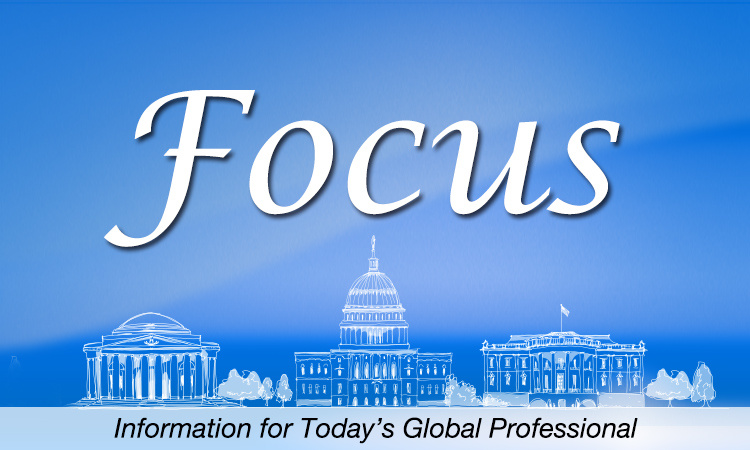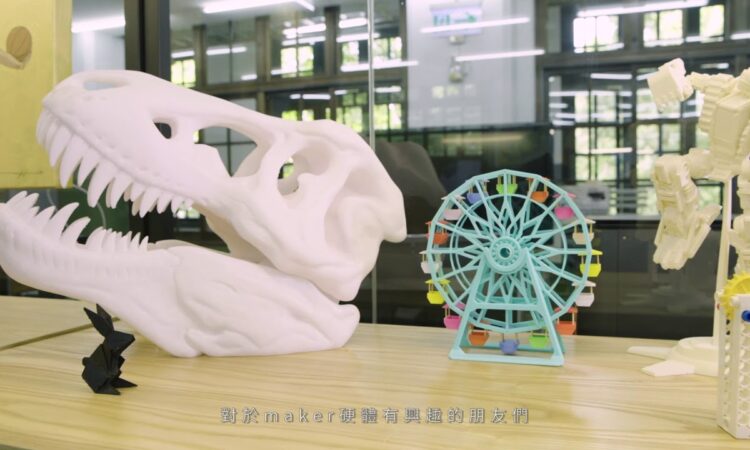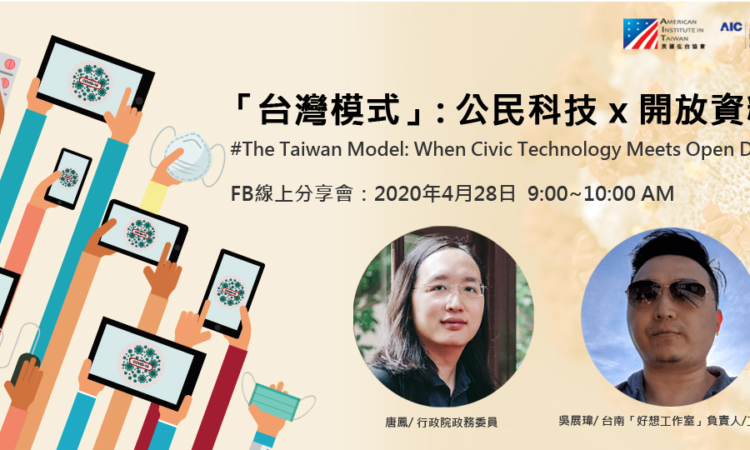- 三月八日至四月二十一日「立穩根基,共創未來:AIT@40 — 1979 年後美台關係展」 屏東勝利星村創意生活園區青島玖柒
March 8 to April 21 “Strong Foundation, Bright Future: AIT@40, U.S.-Taiwan Relations Since 1979” exhibit at Pingtung Military Village Culture Park. - 四月十五日至五月十九日「立穩根基,共創未來:AIT@40 — 1979 年後美台關係展」台南愛國婦人館
April 15 to May 19 “Strong Foundation, Bright Future: AIT@40, U.S.-Taiwan Relations Since 1979” exhibit at Tainan Museum of Patriotic Women. - 四月四日(星期四) 兒童節,放假
April 4 (Thursday) Children’s Day. Closed. - 四月五日(星期五) 民族掃墓節,放假
April 5 (Friday) Tomb Sweeping Day. Closed.
1. 美國在台協會處長酈英傑全球合作暨訓練架構「打擊公私部門貪瀆國際研習營」開幕致詞。
Remarks by AIT Director Brent Christensen at GCTF International Workshop on Anti-Corruption. 
AIT, OT-1912, March 26, 2019, 2 pages.
“This GCTF is the perfect event to showcase our shared values. It is also an opportunity to remind ourselves that democracies are not perfect, but must constantly strive for self-improvement. | OT-1912E | March 26, 2019” (From AIT)
2. 美國在台協會處長酈英傑「立穩根基,共創未來:AIT@40 — 1979 年後美台關係展」屏東場展覽開幕致詞。
Remarks by AIT Director Brent Christensen at AIT@40 Exhibition Opening in Pingtung. 
AIT OT-1911, March 21, 2019, 2 pages.
“In this exhibition, AIT has brought together documents, artifacts, interviews, hundreds of photos, and even augmented and virtual reality features to tell the story of AIT’s role in forging U.S.-Taiwan relations over the past 40 years.” (From AIT)
3. Taiwan 2018 Human Rights Report: Executive Summary. 
AIT OT-1908, March 15, 2019, 33 pages.
“Taiwan is a democracy governed by a president and a parliament selected in multiparty elections. In 2016, voters elected President Tsai Ing-wen of the Democratic Progressive Party to a four-year term in an election considered free and fair. Civilian authorities maintained effective control over the security forces. There were no reports of egregious human rights abuses. Authorities enforced laws prohibiting human rights abuses and prosecuted officials who committed them. There were no reports of impunity.” (From AIT)
4. 美國在台協會處長酈英傑「共享價值月聯合記者會」致詞講稿。
Remarks by AIT Director Brent Christensen at Joint Press Conference on Shared Values Month. 
AIT OT-1907, March 19, 2019, 3 pages.
“I would also note that good governance is one of the three pillars of the Trump Administration’s Indo-Pacific Strategy. The United States and Taiwan share the belief that advancing transparency and rule of law in the region in turn contributes to the goal of a free, open, and prosperous Indo-Pacific region.” (From AIT)
5. 國際宗教自由無任所大使布朗巴克於印太區域保衛宗教自由公民社會對話致詞稿 (全文英文)。
Remarks by Ambassador Sam Brownback at Taipei Religious Freedom Conference. 
AIT OT-1906, March 13, 2019, 7 pages.
“And our confidence in the future, that religious freedom would be the hallmark of the world, that the gates of religious freedom would fly open around the world, and religious oppress, the Iron curtain of religious oppression would come down around the world; and that the people practicing their faith now can do so in peace.” (From AIT)
6. 美國在台協會處長酈英傑「印太區域保衛宗教自由公民社會對話」 2019年區域宗教自由論壇 開幕致詞。 
Remarks by AIT Director W. Brent Christensen at U.S.-Taiwan Space and Astronomy Exhibition. 
AIT OT-1905, March 11, 2019, 3 pages.
“Few places in the Indo-Pacific region, or worldwide for that matter, can claim to have given birth to religious organizations that have done so much to inspire the world and contribute to the common good beyond its own borders.” (From AIT)
7. “The 40th Anniversary of the Taiwan Relations Act And What That Means” Remarks by AIT Director Brent Christensen at Stanford University. 
AIT, March 4, 2019, 6 pages.
“We are and will remain a true friend of Taiwan, and the obligations that we have undertaken in the course of that friendship, as enshrined in the TRA, are rock solid.” (From AIT)
8. 美國在台協會副處長谷立言「2019台北國際工具機展—美國館」開幕致詞。
Remarks by Deputy Director Raymond Greene at USA Pavilion, 2019 Taipei TIMTOS. 
AIT OT-1904, March 4, 2019, 2 pages.
“Welcome to the grand opening of the USA Pavilion at the 2019 Taipei International Machine Tool Show…We are confident that the partnerships between U.S. and Taiwan companies will result in machines that will make the factories of tomorrow smarter and more efficient. (From AIT)
9. Meltzer, Joshua P. and Neena Shenai.
The US-China Economic Relationship: A Comprehensive Approach. 
Brookings, February 28, 2019, 25 pages.
“This article assesses the state of the US-China trade relationship by first looking at the economic impact on the US The policy brief then looks at why the Chinese economic model is so concerning. Despite the challenges the US has had at the WTO, the policy brief argues that the WTO should be central to resolving US-China trade tensions. We outline a multi-prong strategy, including bilateral, multilateral, and unilateral actions as well as working with allies that together would constitute positive next steps for this critical economic relationship. In taking this multifaceted approach, the US needs to stay true to its values and not accept short-term gains or “fig leaf” deals. In particular, creating a managed trade relationship with China would not be a constructive outcome.” (From Brookings)
10. Nezam, Joshua.
North Korea Negotiations are not about Denuclearization, but the Future of Asia. 
Center for Strategic and International Studies, March 15, 2019, 12 pages.
“Whatever results from the February Trump-Kim summit – a path towards denuclearization or a faux peace – the litmus test of a successful policy is whether it increases US and allied security while preserving steadfast American influence and credibility in Asia.” (From CSIS)
11. Woolf, Amy F. and others.
Arms Control and Nonproliferation: A Catalog of Treaties and Agreements. (PDF, 1.4 MB) 
Washington, D.C.: Congressional Research Service, March 18, 2019, 72 pages.
“This report provides an overview of many of the key arms control and nonproliferation agreements and endeavors of the past 40 years. It is divided into three sections. The first describes arms control efforts between the United States and the states of the former Soviet Union, covering both formal, bilateral treaties, and the cooperative threat reduction process. The second section describes multilateral nuclear nonproliferation efforts, covering both formal treaties and less formal accommodations that have been initiated in recent years. The final section reviews treaties and agreements that address chemical, biological, and conventional weapons.”(From CRS Report)

12. 2019 Trade Policy Agenda and 2018 Annual Report of the President of the United States on the Trade Agreements Program. (PDF, 2.7 MB) 
Office of the United States Trade Representative, March 1, 2019, 373 pages.
“This report outlines how the Administration’s trade policies are benefitting American workers, contributing to the strongest U.S. economy in decades, and rebalancing America’s trade relationships and the global economy.” (From Office of the United States Trade Representative)
13. Cory, Nigel.
Understanding Digital Trade. 
Information Technology & Innovation Foundation, March 13, 2019, 5 pages.
“What is digital trade? It is the cross-border transfer of data, products, or services by electronic means, usually the Internet. It is changing global commerce, and in many ways, reducing the relevance of traditional at-the-border barriers to trade, like tariffs. Businesses transfer data across borders to improve operations. In addition, businesses and consumers use the Internet to find and access digital goods, physical goods and services. (From Information Technology & Innovation Foundation)

14. A Vision of the Future of Higher Education: A Conversation with Harvard University President Larry Bacow. (PDF, 201 KB) 
American Enterprise Institute, March 20, 2019, 23 pages.
“Harvard President Larry Bacow discusses the future of education and how American universities have stepped up to the challenge of surviving in the face of existential threats. How have universities overcome the widespread perception of being “elite” and too focused on being “politically correct.” (From American Enterprise Institute)
15. Pope, Chris.
Enhancing Medicare Advantage. 
Manhattan Institute, February 28, 2019, 20 pages.
“Medicare funds health-care services for 60 million elderly and disabled Americans. Of these, 39 million receive coverage through a plan known as “Traditional Medicare” or “Medicare Fee-for-Service” (MFFS) that the federal government administers directly. Increasing numbers—21 million in 2019—enroll in Medicare Advantage (MA), choosing Medicare coverage from competing plans managed by private insurers. This paper suggests potentially bipartisan reforms that could enhance the quality of MA plans for beneficiaries, while getting better value for taxpayers.” (From Manhattan Institute)
16. Advancing the Landscape of Clean Energy Innovation. 
IHS Markit and the Energy Futures Initiative (EFI), February 2019, 229 pages.
“The report examines a broad list of technologies related to the areas of energy supply, energy application and cross-cutting technology areas. (From IHS Markit and the Energy Futures Initiative)

17. 2018 Report Government-Industry Advisory Panel on Technical Data Rights. (PDF, 1.5 MB) 
Department of Defense, March 05, 2019, 191 pages.
“The Panel recognizes that the Department of Defense (DoD) and industry have different business models, which at times may be in conflict. In exploring common ground, the Panel members received the testimony of many defense and industry officials, reviewed the history of relevant legislation and identified “tension points” of disagreement between the Government and industry.” (From the Department of Defense)
18. Fefer, Rachel F.
Data Flows, Online Privacy, and Trade Policy. (PDF, 1.3 MB) 
Washington, D.C.: Congressional Research Service, March 11, 2019, 25 pages.
“Ensuring open cross-border data flows has been an objective of Congress in recent trade agreements and in broader U.S. international trade policy. The free flow of personal data, however, has raised security and privacy concerns. U.S. trade policy has traditionally sought to balance the need for cross-border data flows, which often include personal data, with online privacy and security. Some stakeholders, including some Members of Congress, believe that U.S. policy should better protect personal data privacy and security, and have introduced legislation to set a national policy. Other policy makers and analysts are concerned about increasing foreign barriers to U.S. digital trade, including data flows.”(CRS Report)
19. Roberts, Thomas. G.
Spaceports of the World. 
Center for Strategic and International Studies, March 13, 2019, 84 pages.
“This report analyzes ground-based space launches from 1957 to 2018, including brief histories of all active and inactive orbital spaceports, 10 year launch records for the 22 spaceports still in use today, and the current status of several proposals to create new facilities capable of supporting orbital space launches.”(From CSIS)
















![Video Thumbnail [Recovered]-01](../wp-content/uploads/sites/269/Video-Thumbnail-Recovered-01-1-750x450.jpg)









